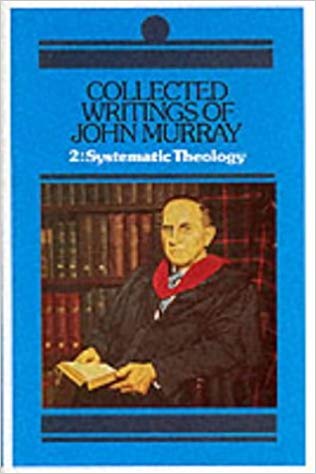A Brief Book Summary from Books At a Glance
by Steve West
About the Author
John Murray was a distinguished theologian, preacher, and author. He served as Professor of Systematic Theology at Westminster Theological Seminary from 1937-1966.
Part 1
It is in the first two chapters of Genesis that we learn vitally important lessons about human origins. God’s creative work in the week of creation culminated in the creation of human beings. We can see several important distinctions in the text about the creation of man that sets it off as unique compared to the rest of the acts of creation, starting with God expressing thought and counsel (“let us make”). Man is created in God’s image and likeness, endowed with unique dignity. There is also a position of lordship given to man, and the way that God formed Adam is without parallel. Genesis 1 and 2 do not contain contradictory creation accounts, but complementary ones. Adam is formed out of pre-existing material, giving him affinity with both the inanimate environment and animate beings. God breathes into him in a special process to make him a living being. Adam did not come from a physical progenitor: his formation and the inbreathing are both essential to his being made a man. There was no helpmeet for Adam, and Eve also had to be formed by a special process. Unlike other creatures, Adam named all the animals and exercised discrimination in his wisdom. There is a sacredness to human life that is unlike that of the animals, and Adam had moral responsibility and intelligence. No other animal has to uphold ethics and religion like man. The New Testament affirms the Genesis account, and the biblical material is incompatible with the theory of evolution.
Man is a bodily creature, and therefore it is biblical to say that man is a body rather than man has a body. Scripture shows that the body was made before the soul, and the body is good; death is the result of sin, not the result of merely being physical. Our bodies are now depraved, and sins of the body are sins of ourselves. When we die we are laid in the ground and return to dust. As fully man, Jesus had a real body. John appealed to his own sense experiences of the incarnate Christ, and although faith was required to see the glory, God was encountered in the incarnate Christ. Christian spirituality cannot deny the body of Christ or the good of the material world. Denying the physical nature of the resurrection is to deny the resurrection itself. We are judged according to what we have done in the body. Scripture is clear that there is an element of the individual which is differentiable from the physical body, and this is referred to as the spirit or soul. The spirit has its own metaphysical properties that are unique from the body, and it survives bodily death. It is the spirit that is rational and bears personal identity. . . .
[To continue reading this summary, please see below....]The remainder of this article is premium content. Become a member to continue reading.
Already have an account? Sign In
Buy the books

COLLECTED WRITINGS OF JOHN MURRAY, VOLUME 2: SYSTEMATIC THEOLOGY, by John Murray